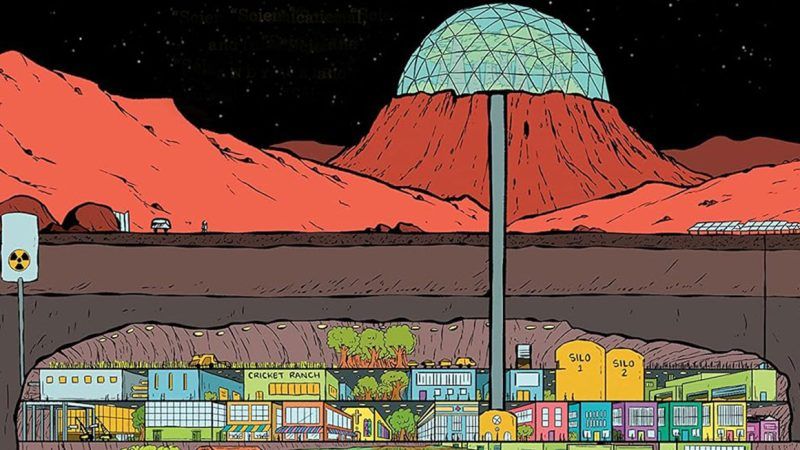Review: Should Humans Settle Mars? This Book Is Skeptical.
A City on Mars is a counterbalance to the growing optimism over space exploration.

The subtitle of the cartoonist-biologist husband-and-wife pair Zach and Kelly Weinersmith's book A City on Mars asks, Can We Settle Space, Should We Settle Space, and Have We Really Thought This Through?
The answers the couple suggest are "not any time soon," "maybe/maybe not," and "definitely no."
It's a buzzkill of a thesis for anyone with even the remotest sense of wonder and optimism about humanity's potential future among the stars. If you're a space nerd at all, parts of the book read as if someone is telling you over and over again that ice cream has calories.
But busting space dreamers' bubble is kind of the idea. The existing field of "space settlement" studies, the authors argue, is hopelessly captured by advocates for the idea. A City on Mars is intended as a pessimistic corrective. A punchy wit and exhaustive research make that pessimistic corrective both fun and compelling.
Much of the book is spent considering some very specific questions regarding space settlement, such as how people will be able to grow crops in razor-sharp radioactive lunar regolith, or what precise legal regime will govern asteroid miners shooting huge rocks somewhere closer to Earth.
Even if those technical problems are solved, the authors will still ask the existential question of why we'd go to enormous trouble and expense to expand to new planets just to live in a metal bubble, completely sealed off from our new home.
Hardcore space colonists won't be deterred by the book's pessimism. But they might gain some appreciation for how hard it is to replicate by design physical and social habitats that took millions of years of evolution here on Earth to get even somewhat right.
Rent Free is a weekly newsletter from Christian Britschgi on urbanism and the fight for less regulation, more housing, more property rights, and more freedom in America's cities.


Show Comments (64)